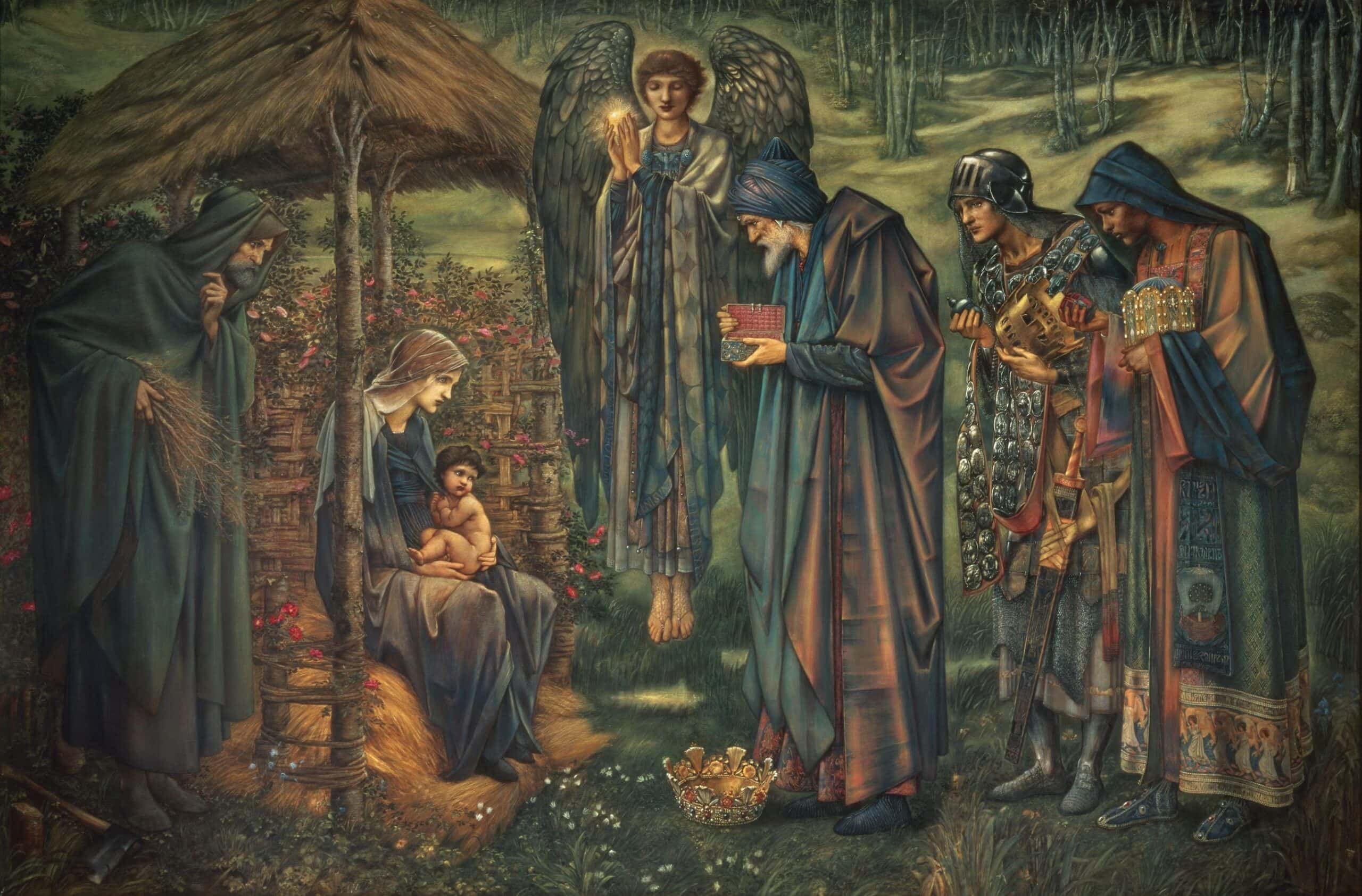Lent is a popular time to reflect and meditate on the seven last words of Jesus. Perhaps we should make Advent a popular time to do the same with what may have been the seven first words of Jesus.
During Advent, we hear one of the most frequently heard Gospel stories in the liturgical year, the birth of Jesus foretold by Luke. The dozen verses from Luke, 1:26-38, are the popular start of many a Christmas Pageant.
While I played Joseph during our school play version in the second grade, I did not consider the experience particularly moving or important. To me, these verses used to mean little more than the narrative of a play.
I had no lines to remember and recite. I simply walked with Mary from one side of the stage to the other before settling in center stage and waiting for the shepherds and wise men to visit. I said nothing, and I waited. What once seemed like limitations – no lines to memorize, no movement to coordinate – now seem like invitations. How many of us would appreciate just a few moments in the coming days and weeks to just stay in one place? How many of us would like not to have to fill spaces with words and simply have a little time for reflection or silence?
A closer look at the Gospel passage offers a fresh perspective and even some clues as to what may have been the first seven words of Jesus. How specific and concrete Luke is in his narrative is striking. In a tradition such as ours, where we know very little about so many saints, we are told seven significant names in just a pair of sentences. They may well be the most detailed lines of the entire Gospel.
“In the sixth month of Elizabeth’s pregnancy, God sent the angel Gabriel to Nazareth, a town in Galilee, to a virgin pledged to be married to a man named Joseph, a descendant of David. The virgin’s name was Mary.”
Elizabeth, Gabriel, Nazareth, Galilee, Joseph, David, and Mary: these are the names that bring Jesus into the world, our world. Names are important. When we know names, it helps show that those people and places matter. The names Nazareth and Galilee mean more than mere first-century zip codes. Having a home and the sense of belonging that accompanies it means more than just a physical mailing address. Even as adults, we often repeat the name of wherever we call home.
We think it important to know relationships and the names of people we are related to, as expressed in Elizabeth, Joseph, David, and Mary. In fact, the majority of the names are flesh and blood relatives, people who preceded Jesus or lived along with him. We certainly think it important to recognize the ways that God speaks to us through messengers, as expressed in Gabriel. What names come to mind when you think of people influential in your current understanding of God, in your current communication with God, and in your current belief in God?
I wonder if some of these words would have been among the most emphasized in Jesus’s childhood. Should Jesus ever get lost, or at least separated from his parents or home – as we know he will – then he would surely have to know where he was from: Nazareth, in Galilee. Many of us will be taking advantage of the coming weeks and days to travel home, too. Once there, Jesus might have even had to provide further direction of whose home: Joseph and Mary, or other relatives, Elizabeth. Once older – although we know not that much older – Jesus may have come to hear from his mother the important circumstances and events, even visions and dreams, that brought Jesus into our world. Such a story would have surely included the last of the seven first words, Gabriel.
Perhaps there is an invitation for us to reflect on the names of people or places in our own faith journeys. We may not be as lucky to name as many people within our very own family. Names from our school, church, or workplace might make their way into our own lists. In fact, the very names of schools, churches, or workplaces may be the home-like places in our own journeys, locations of great growth and relationship. By being conscious of them, we recognize our own humility in never completing our journeys entirely on our own. Other people brought us to where we are now, continue to accompany us, and perhaps even have yet to be included in the sentences and pages to come.
May the coming days remind us that we are not just waiting for the birth of Jesus but also his continued presence in our lives, in names of people – whether family or strangers – and places – future “homes” of sorts – that we have yet to know.


